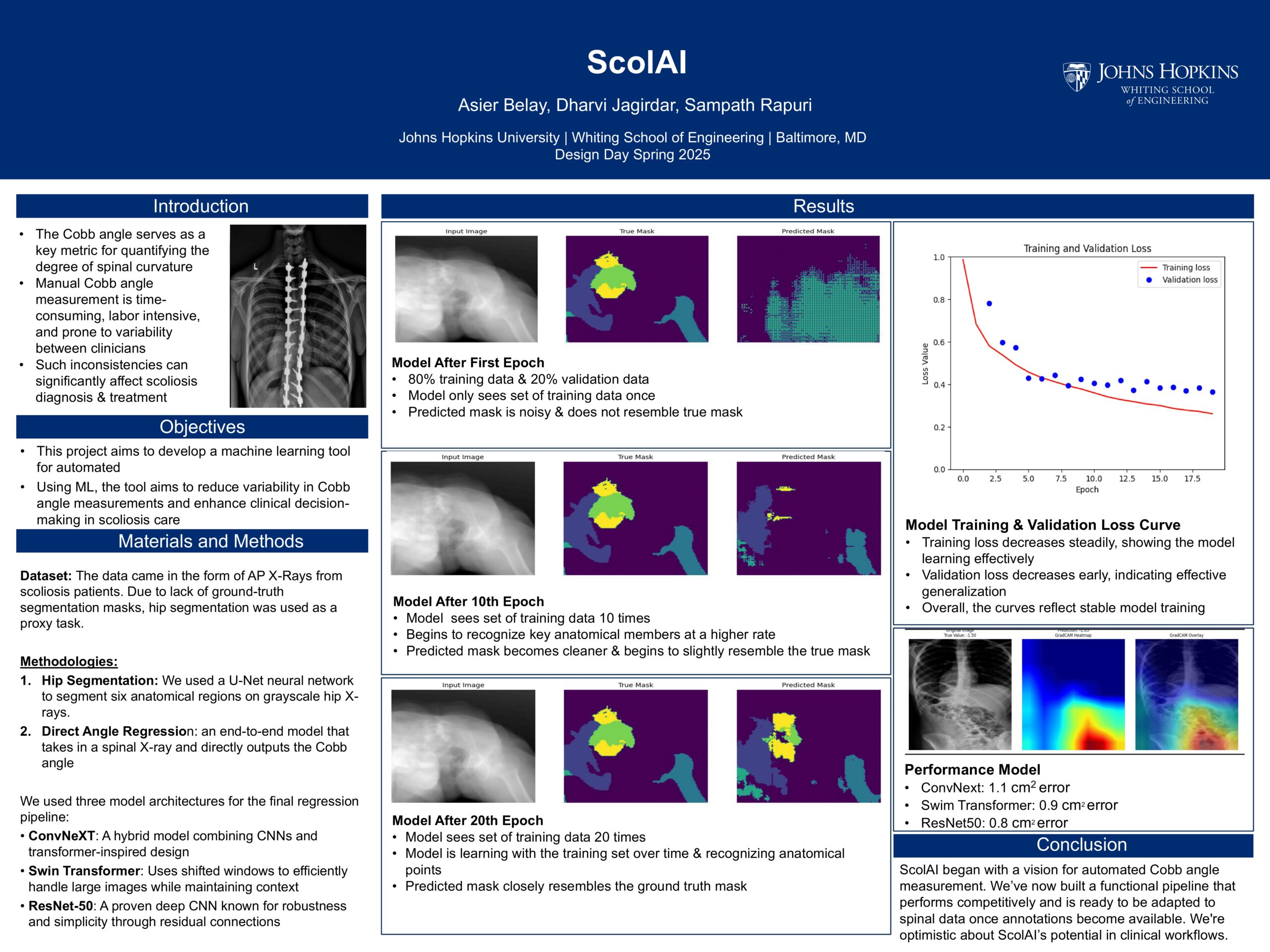
Create
Design Project Gallery
ScolAI
- Program: Electrical and Computer Engineering
- Course: EN.520.487 Clinical Diagnostic Devices and Methods
- Year: 2025
Project Description:
ScolAI is a machine learning pipeline designed to automate the measurement of the Cobb angle, a key metric for diagnosing scoliosis. Manual Cobb angle measurements are time-intensive and prone to variability between clinicians, which can affect treatment decisions. Our approach uses AP X-rays from scoliosis patients and implements two main strategies: hip segmentation as a proxy task and direct angle regression. The segmentation model is built on a U-Net architecture, while the regression task leverages ConvNeXT, Swin Transformer, and ResNet-50 to predict Cobb angles from spinal X-rays. Our models demonstrate low error rates and strong generalization, setting the stage for future deployment on labeled spinal datasets. ScolAI holds promise for streamlining clinical workflows and improving consistency in scoliosis care.
Project Poster
Open full size poster in new tab (PDF)
Project Poster Summary:
This project presents a machine learning tool developed to automate the measurement of the Cobb angle—a key metric in scoliosis diagnosis. Manual measurement is time-consuming and inconsistent, often varying between clinicians. To address this, our team trained deep learning models on AP X-rays of scoliosis patients, using hip segmentation as a proxy task due to limited labeled spine data. The pipeline features both segmentation and regression approaches, leveraging architectures like U-Net, ConvNeXT, Swin Transformer, and ResNet-50. Results show competitive accuracy, with ResNet-50 achieving the lowest error. ScolAI demonstrates strong potential for reducing clinical variability and streamlining scoliosis assessment.


